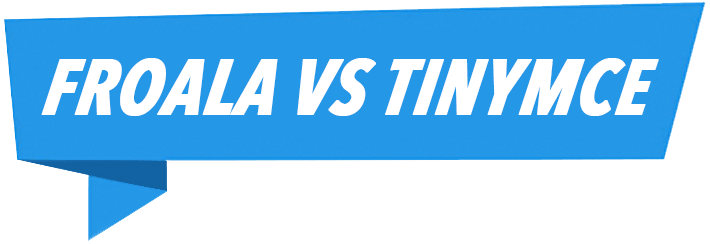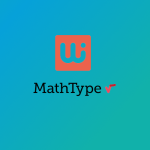Froala vs. Mercury: Which Editor Fits Your Needs?
- Posted on
- By Derek Johnson
- In Comparisons, Editor
Table of contents
- What is the Mercury Editor?
- What is Froala?
- What are the Features?
- Mercury Editor
- Configuration
- HTML5 contentEditable
- Markdown Support
- Regions
- Custom Regions
- Jasmine and Cucumber Tested
- Froala
- Track Changes
- Advanced Styling
- Optimized for mobile
- Customization
- Markdown Support
- International
- Iframes
- Feature Comparison
- Feature Rating
- Mercury Editor
- Froala
- What about Documentation?
- Mercury Editor
- Froala
- What about Ease of Use?
- Mercury Editor
- Froala
- What about Pricing?
- Mercury Editor
- Froala
- Basic
- Pro
- Enterprise
- Enterprise+
- Which WYSIWYG Editor Should I Use?

WYSIWYG editors are nothing new, especially in the world of web development. As you know, WYSIWYG editors allow users to see a live preview of their editing while working on it. Hence the name, What You See Is What You Get.
But while they have been around for a while, not all WYSIWYG editors are created equally — there are as many WYSIWYG editors as there are possible editor features. Because of the variety, it can be difficult to find one that is the best fit for your project.
To help you out with that we have created a series where we compare Froala’s Editor with other editors on the market — that way you can easily locate the best fit for your project.
In this article, we’ll compare Froala with the open-source Mercury Editor about its features, ratings, pricing, and which WYSIWYG HTML Editor should you use? Let’s get started!
What is the Mercury Editor?
Known as the Rails HTML 5 WYSIWYG editor, the Mercury Editor is a full-featured editor. According to its documentation, it “uses HTML5 contentEditable features on block elements, instead of iframes.”
What is Froala?
Froala is an aesthetically appealing web editor that’s easy to integrate for developers and capable of capturing anyone’s attention. It is a lightweight WYSIWYG HTML Editor written in Javascript that enables rich text editing capabilities for your applications.
What are the Features?
Mercury Editor
Configuration
The Mercury Editor allows users full configuration freedom with its toolbars. You can add, remove, or create new toolbar items.
HTML5 contentEditable
This editor supports all HTML5 elements, syntax, and JavaScript APIs.
Markdown Support
Mercury Editor has a markdown region that supports markdown by default.
Regions
This editor has regions that support Simple, Snippet, Full HTML, and Images by default.
Custom Regions
If the default region does not give you what you need, Mercury Editor allows you to create your own region based on your specific needs.
Jasmine and Cucumber Tested
Mercury editor ensures production-ready code by being Jasmine and Cucumber tested.
Froala
Track Changes
Froala v4.0 allows users to track changes against new or deleted text within the editor as well as various styling and formatting changes to the text, images & tables.
Advanced Styling
Froala provides more advanced styling options through plugins. You just have to include the ones you need.
Optimized for mobile
Frola can be accessed using mobile and tablet devices. This editor supports both android and IOS devices, along with image and video resize for mobile and a customizable toolbar for practically any screen size.
Customization
Froala offers complete customizing freedom. You can use the API to change the default behavior or edit the source code.
Markdown Support
Also, a v4.0 feature, this editor lets you format words & phrases in our rich text editor using code shortcuts through predefined markdown syntax.
International
Used all over the world, in more than 100 countries, Froala works in every language, including East Asian languages.
Iframes
Froala helps you avoid style or script conflict by isolating your content from the rest of the page using iframe.
Feature Comparison
Both editors have more features than we can discuss in this article. In that case, Here’s a feature comparison table for more detail on which has the best features:
| Features | Froala | Mercury Editor |
| Customization | Yes | No |
| Cross-platform | Yes | Yes |
| Code view | Yes | No |
| Custom regions | No | Yes |
| Code mirror | Yes | No |
| Ajax ready | Yes | No |
| International | Yes | No |
| RTL support | Yes | No |
| Track changes | Yes | No |
| Markdown support | Yes | No |
| 50l compliant | Yes | No |
| WCAG 2.0 compliant | Yes | No |
| WAI-ARIA compliant | Yes | No |
| Jasmine and Cucumber | No | Yes |
| Snippets | No | Yes |
| Configuration | No | Yes |
Feature Rating
Mercury Editor
Froala
What about Documentation?
Mercury Editor
The Mercury Editor has some helpful resources, starting with its on-page documentation that welcomes you with a Railscast, i.e., a walkthrough to getting Mercury Editor installed, set up, and working in a Rails application. Then a link to a demo and an installation and usage guide.
Froala
Froala has many helpful resources online, from youtube videos, help center pages, guides, community to a full website page dedicated to FAQs. In addition, its on-page documentation begins with a quick start guide and then goes on to include links to 60+ examples, 10+ how-to guides, and 7 create-element guides.
What’s more, the Froala support team is always on hand to help if you can’t find an answer in all its available resources.
What about Ease of Use?
Mercury Editor
So far the Mercury editor only invites you to check out a demo, view a project on GitHub, or download it. However, it promises to provide a walkthrough of all its features in the future.
Froala
With an easy-to-understand quick start guide and an option to explore its complete features before downloading, Froala has an excellent rating when it comes to ease of use. The Froala support team is also on hand to guide you every step of the way.
What about Pricing?
Mercury Editor
(Free) No pricing information is given. However, this generally means no support options, and if you do need additional help, you will likely need to hire an experienced developer to show you the way if the documentation doesn’t answer your questions.
Froala
Froala is priced in four tiers, each with the option of a subscription or perpetual license. Also, there are different features available for each tier.
Basic
$199/year
This plan is perfect for a blog or a simple personal application. The following features are available in this plan:
- Unlimited monthly active users
- 1 product
- 3 domains
- Activation key per domain
- Free updates to the latest versions
- Community only support.
- Self-hosted
Pro
This plan comes with no domain constraint and is ideal for SaaS, intranet, or mobile apps. It includes all the features in the basic plan plus the following:
- Full source code
- SaaS/Subscription
- Internal applications.
Enterprise
This plan is great for teams with wide product portfolios. It includes all the features in the Pro plan but for 3 products.
Enterprise+
This plan is perfect for teams with on-premise deployments. It includes unlimited everything and redistribution/OEM.
Which WYSIWYG Editor Should I Use?
Ideally, your editor of choice would depend on your needs and resources. However, the difference between these two is clear for all to see. Although Mercury Editor is free, the saying “free” doesn’t always mean “best” applies here. It lacks many powerful features available in Froala that users have come to expect from modern WYSIWYG.
Froala, on the other hand, is fully packed with premium features and personalized plans for everyone. Are you ready to get what you see? Click here to get started.
Derek Johnson
Derek Johnsona former writer for Froala, showcased exceptional talent and dedication during their tenure with the company.






No comment yet, add your voice below!